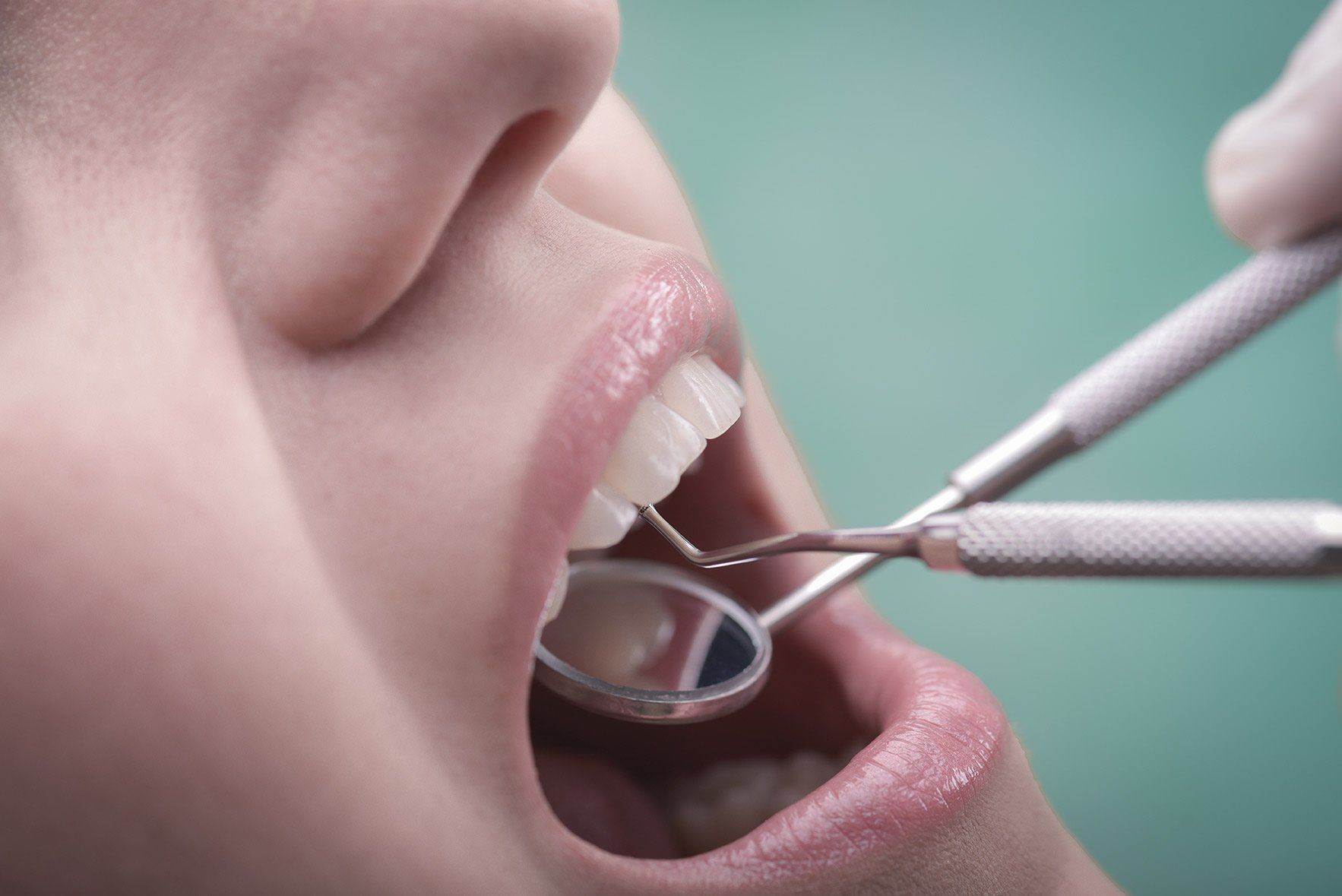What causes bad breath?
Bad breath isn't fun for anyone

Here are a few causes and some ideas to keep your breath fresh. Sometimes bad breath is the result of a garlicky dinner or morning coffee but sometimes it’s caused by a chronic condition called halitosis. If you have persistent bad breath that doesn’t go away even after brushing and rinsing with mouthwash or if bad breath returns even when you avoid foods known to cause it, you might have halitosis.
Many Causes of Bad Breath:
- Dry Mouth - Saliva helps keep your tissues healthy and rinses away stray food particles that would otherwise linger between your teeth. Without enough saliva, bacteria flourishes, causing bad breath. Certain medications, alcohol, mouth breathing, and even smoking can cause dry mouth.
- Food – Certain foods like garlic, coffee, onions, and fish have odor-causing compounds in them that can linger in the mouth resulting in bad breath.
- Tooth Decay and Periodontal Disease - When bacteria seeps deep below the gum line or into the crevices of a cavity that you can’t reach with your toothbrush, that bacteria can lead to bad breath that can only be helped by seeing a dental professional.
- Sinus Infections or Allergies - If you have postnasal drip due to an infection or allergies the bacteria feed on the mucus settling in your nose and throat, causing bad breath. Mucus trapped in your sinuses from a cold or sinus infection can breed bacteria, too. If your sinuses are stuffy, you may also be breathing through your mouth, which can cause dry mouth.
- Smoking – Smoking not only dries out your mouth, but also irritates the gum tissue causing periodontal disease.
Bad breath on its own can be relatively simple to treat. See your dentist at least twice a year for an exam and professional cleaning, and brush twice a day (including your tongue) for at least two minutes. Flossing daily removes food particles between the teeth and helps keep periodontal pockets tight against the tooth. If you wear dentures, be sure to clean them regularly to remove food debris.
Be sure to drink enough water throughout the day to stay hydrated and keep your oral tissues wet. If you are prone to allergies or sinus infections a saline nasal rinse can flush trapped mucus, helping you breathe easier and reduce buildup. Mouth rinses, sugarless gum can help stimulate saliva flow, which keeps your mouth moist and washes away odor-causing food particles.
If you’ve taken all the above precautions and still notice persistent bad breath, make an appointment to see your dentist or physician. You may have tooth decay, the start of periodontal disease, or something more severe. In some cases bad breath can be a sign of an underlying condition like liver or kidney disease or diabetes. Together, you and your doctor can find the cause and work to make your breath fresh again.
Book an appointment
Contact Us
We will get back to you as soon as possible.
Please try again later.



